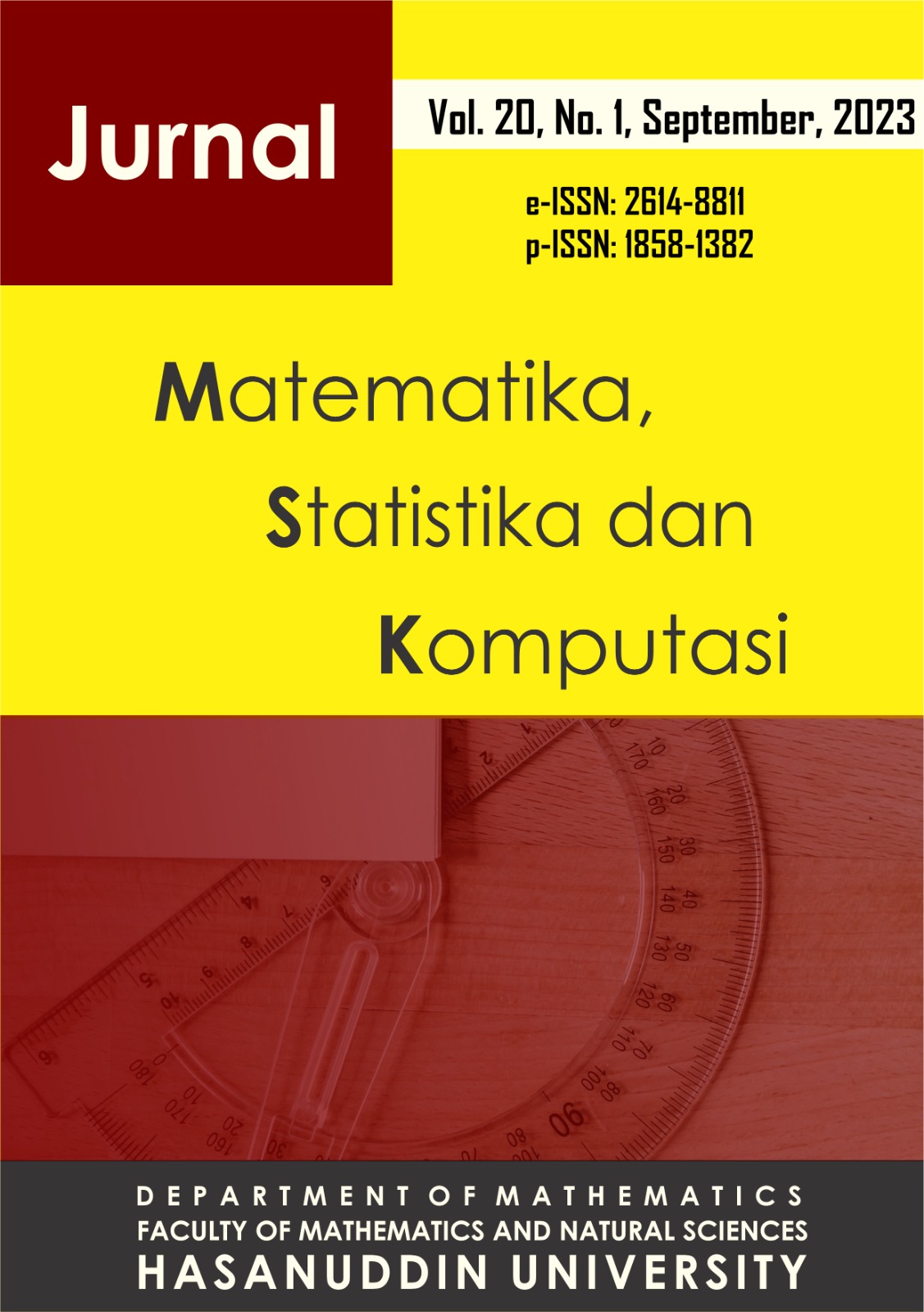Identification Of Hijaiyah Letters Image Using Extreme Learning Machine Method
DOI:
https://doi.org/10.20956/j.v20i1.27158Keywords:
ELM, digital image, Identification, hijaiyah lettersAbstract
The development of digital image processing technology has many benefits, one of which is the identification of an object, such as the identification of the image of the hijaiyah letter. Hijaiyah letters are the letters of the arabic alphabet as the original language of the Qur'an. In essence, humans have the ability to recognize and distinguish hijaiyah letter patterns from one another, but this is not the case with computers, using digital images and machine learning, in this study an identification concept was built by recognizing the image of hijaiyah letters using one of the machine learning methods. namely the extreme learning machine (ELM) method. Extreme learning machine (ELM) is a feedforward neural network with one hidden layer or better known as single hidden layer feedforward neural networks (SLFNs). Therefore, the purpose of this study is that the computer can identify objects as well as human capabilities and see how accurate the results obtained in the ELM method are. The digital image identification process using the extreme learning machine (ELM) method is carried out in two stages, namely training and testing, where previously the preprocessing process was carried out first by changing the color of the RGB image to HSV and processing the color v, then segmentation was carried out with the aim of separating the objects (foreground) with the background, then to make it easier to recognize the pattern, a morphological process is carried out. From the simulation carried out on the test data, the results obtained an average accuracy of 90% with an error of 10%.
References
Gonzalez, R.C. & Woods, R.E, 2008. Digital Image Processing, 3rd edition, Prentice Hall, New Jersey.
Fikriya, Z.A, Irawan, M. I & Soetrisno, 2017. Implementasi Extreme Learning Machine untuk Pengenalan Objek Citra Digital, Jurnal Sains Dan Seni ITS, Vol. 6, No.1.
Mahdiyah, U., Irawan, M. I., & Imah, E. M, 2015. Study Comparison Backpropagation, Support Vector Machine, and Extreme Learning Machine for Bioinformatics Data. Journal of Computer Science and Information, vol. 8, pp 53-59.
Yahia, S., Said, S., dan Zaied, M., 2021. Wavelet Extreme Learning Machine and Deep Learning for Data Classification, Neurocomputing, https://doi.org/10.1016/j.neucom.2020.04.158
Deepa, S. N. & Arunadevi, B, 2013. Extreme Laerning Machine for Classification of BrainTumor in 3D MR Images. Informatol, vol. 46, pp 111-121.
Syahara, P., 2017. Identifikasi Huruf Hijaiyah Tulisan Tangan Menggunakan Jaringan Syaraf Tiruan Backpropagation, Skripsi, Program Studi Teknik Informatika, Sekolah Tinggi Manajemen Informatika dan Komputer AKAKOM, Yogyakarta.
Sanjaya, A., & Widodo, D.W., 2018. Identifikasi Tulisan Tangan Huruf Hijaiyah, Jurnal Ilmiah NERO, vol. 4, no. 1.
Tiffany, S., Sarwinda, D., Handari, B. D., Hertono, G. F., 2021. The Comparison Between Extreame Learning Machine and Artificial Neural Network-Back propagation for Predicting the Dengue Incidences Number in DKI Jakarta, Journal of Physics: Conference Series. 1821 012025
Ding, S., Zhao, H., Zhang, Y., Xu, X., Nie, R., 2015. Extreme learning machine: algorithm,theory and applications, Artif. Intell. Rev. 44 (1) (2015) 103–115.
Rajesh, Prakash, J. S, 2021. Extreme learning machines a review and state of the art,
Int. J. Wisdom Based Comput. 1 (1) 35–49.
Srikanth, R., & Bikshalu, K., 2020. Multilevel thresholding image segmentation based on energy curve with harmony Search Algorithm Ain Shams Engineering Journal 12, 1–20. https://doi.org/10.1016/j.asej.2020.09.003
Huang, G.B., Zhu, Q.Y. & Siew, C.K., 2006. Extreme Learning Machine: Theory and Applications. Neuron Computing, Vol.70, hal. 489-501. Nanyang Technological University. Singapore
Glorot, X., & Bengio, Y., 2010. Understanding the Difficulty of Training Deep Feedforward neural Networks, Proceeding of the 13th International Conference on Artificial Intelligence and Statistics (AISTATS), vol 9, pp. 249-256.
Song, S., Wang, M., & Lin, Y., 2020. An Improved algorithm for incremental extreme Learning machine. System Science & Control engineering: An Open Access Journal., vol 8, No. 1, 308-3017
Ooi, B., P., dkk., 2021. A Study of Extreme Learnig Machine On Small Sample-Sized Classification Problems. International Conference on Man Machine System.
Downloads
Published
How to Cite
Issue
Section
License
Copyright (c) 2023 Author and publisher

This work is licensed under a Creative Commons Attribution 4.0 International License.

This work is licensed under a Creative Commons Attribution 4.0 International License.
Jurnal Matematika, Statistika dan Komputasi is an Open Access journal, all articles are distributed under the terms of the Creative Commons Attribution License, allowing third parties to copy and redistribute the material in any medium or format, transform, and build upon the material, provided the original work is properly cited and states its license. This license allows authors and readers to use all articles, data sets, graphics and appendices in data mining applications, search engines, web sites, blogs and other platforms by providing appropriate reference.







